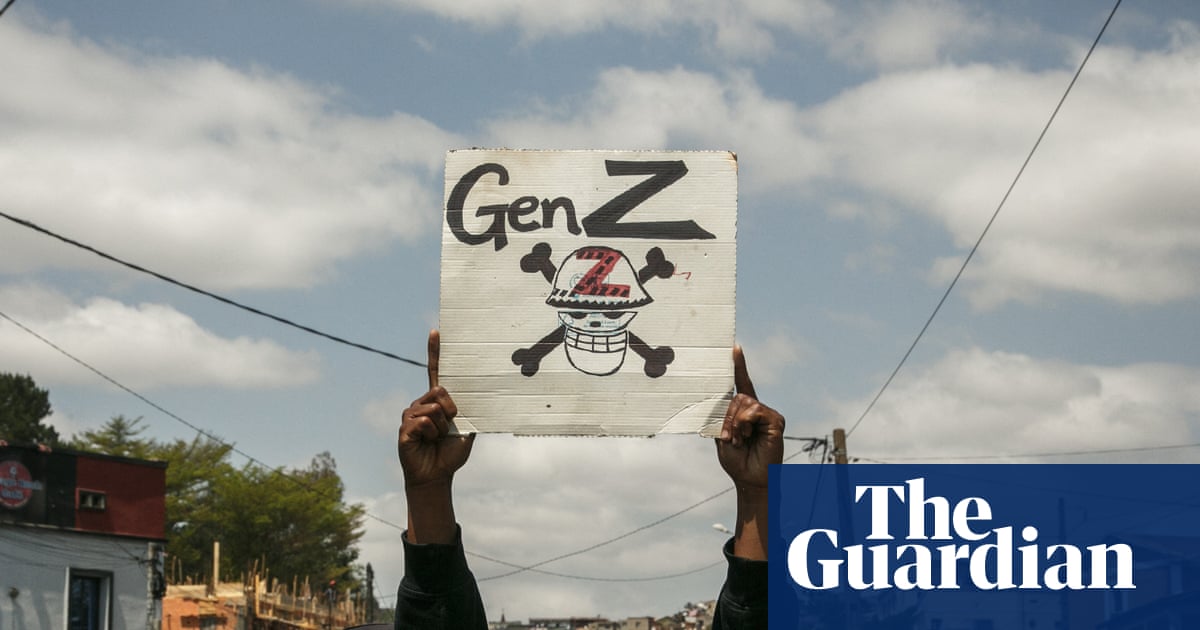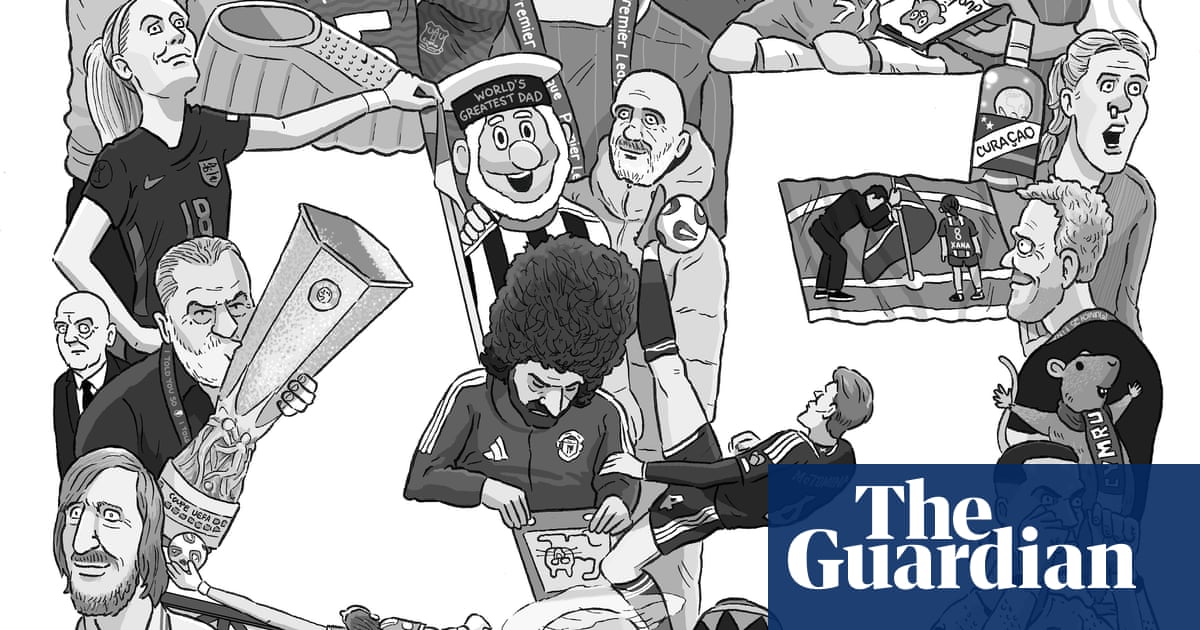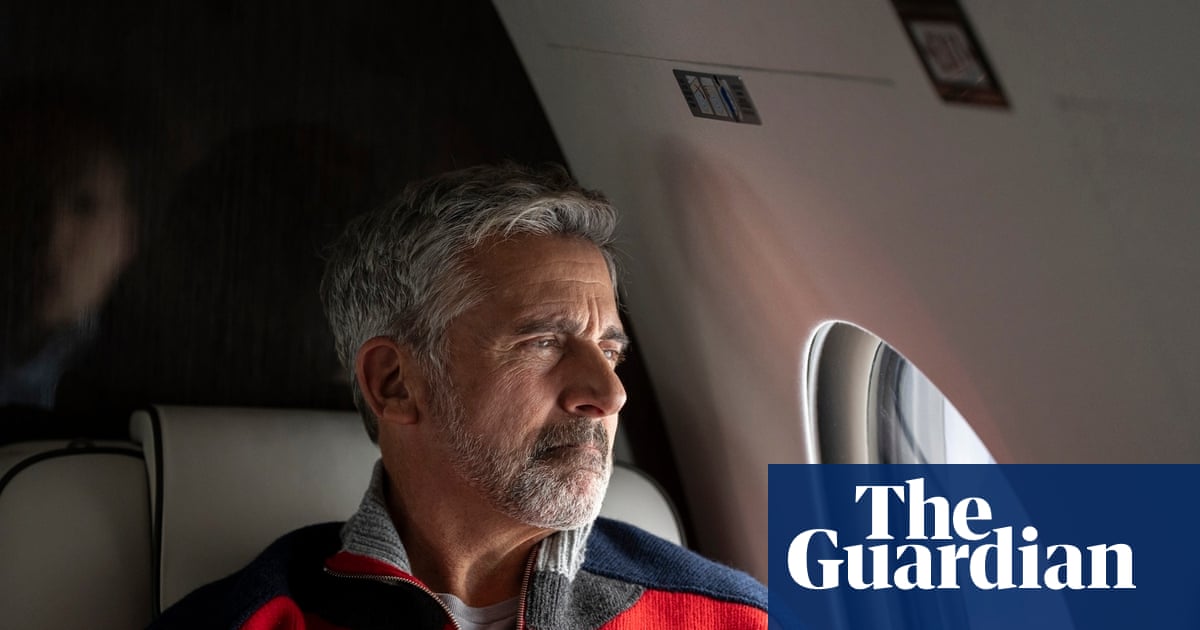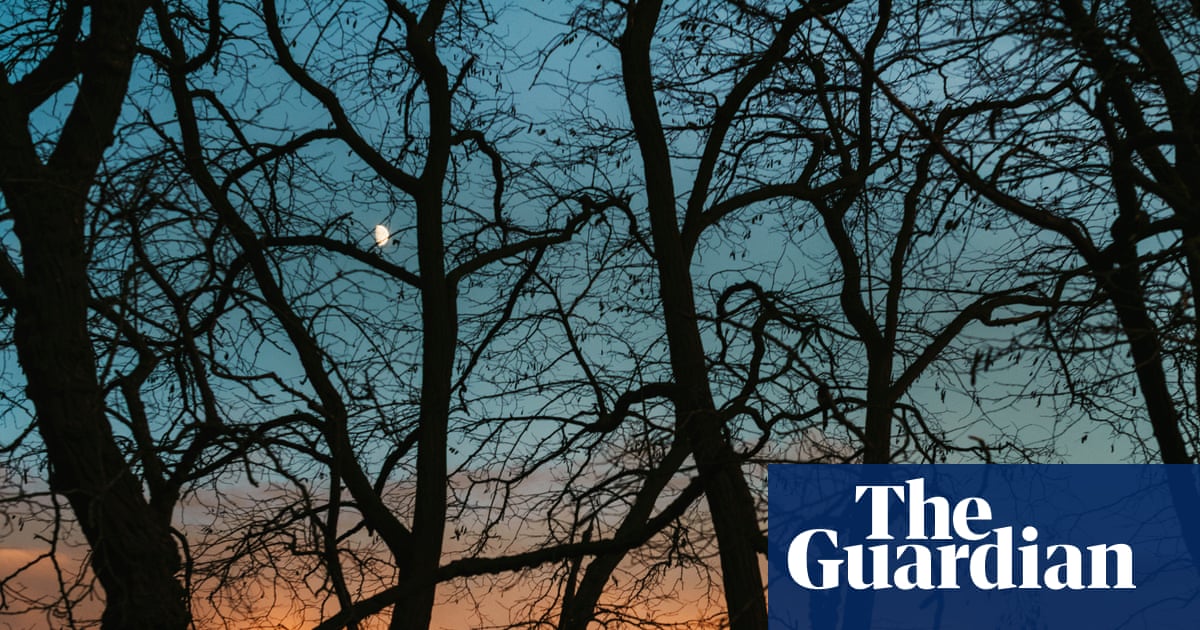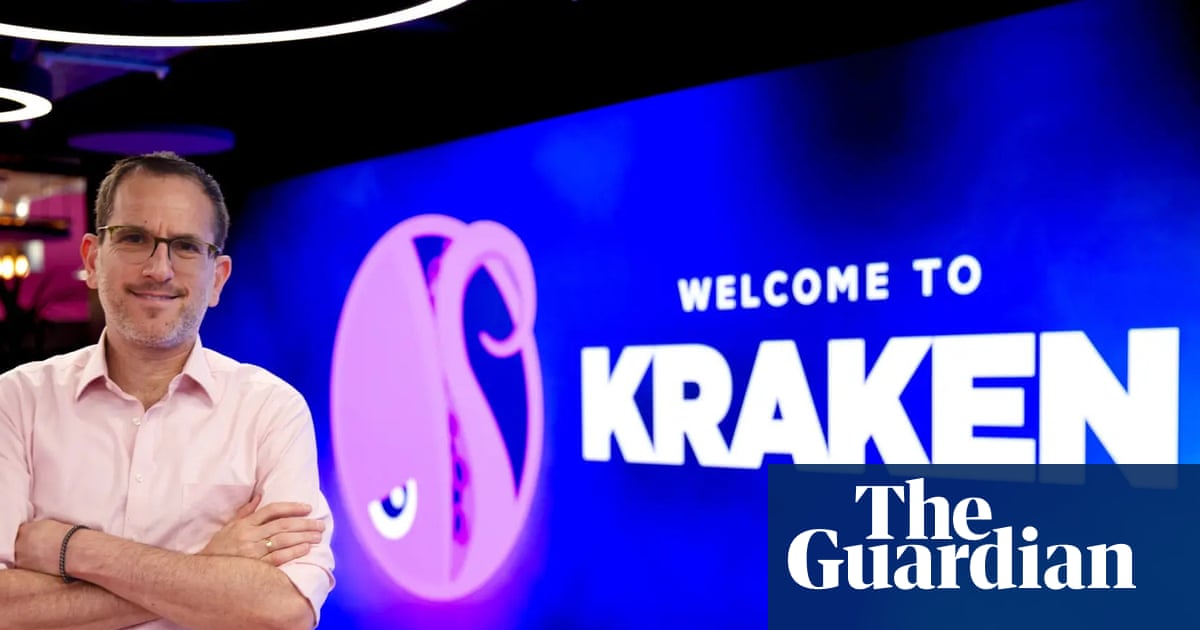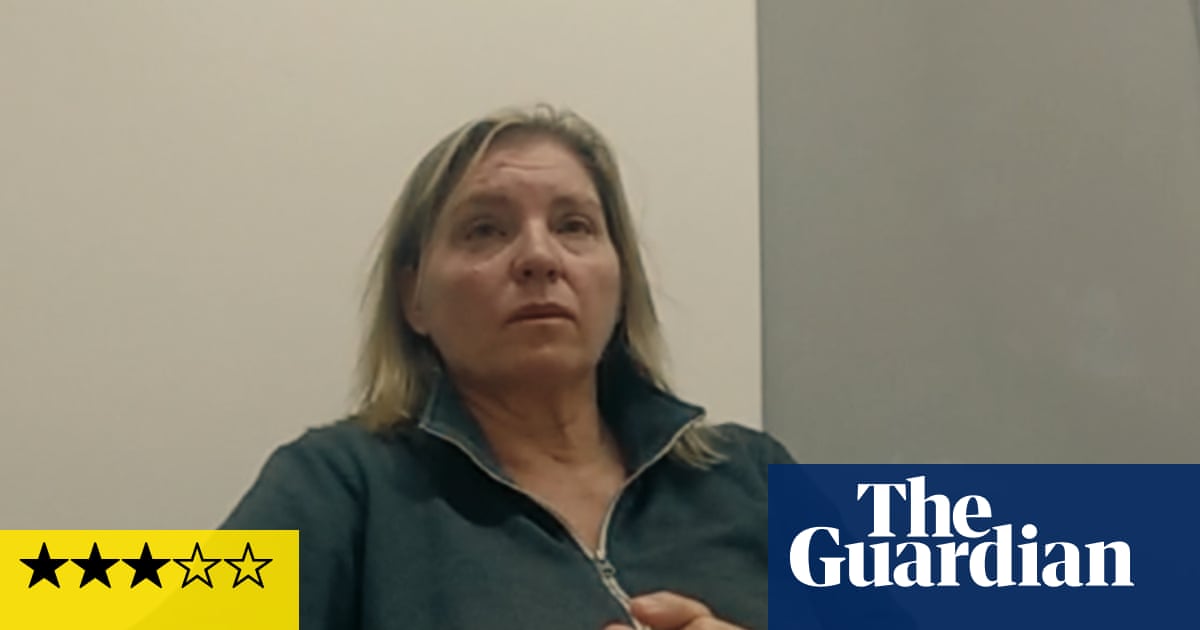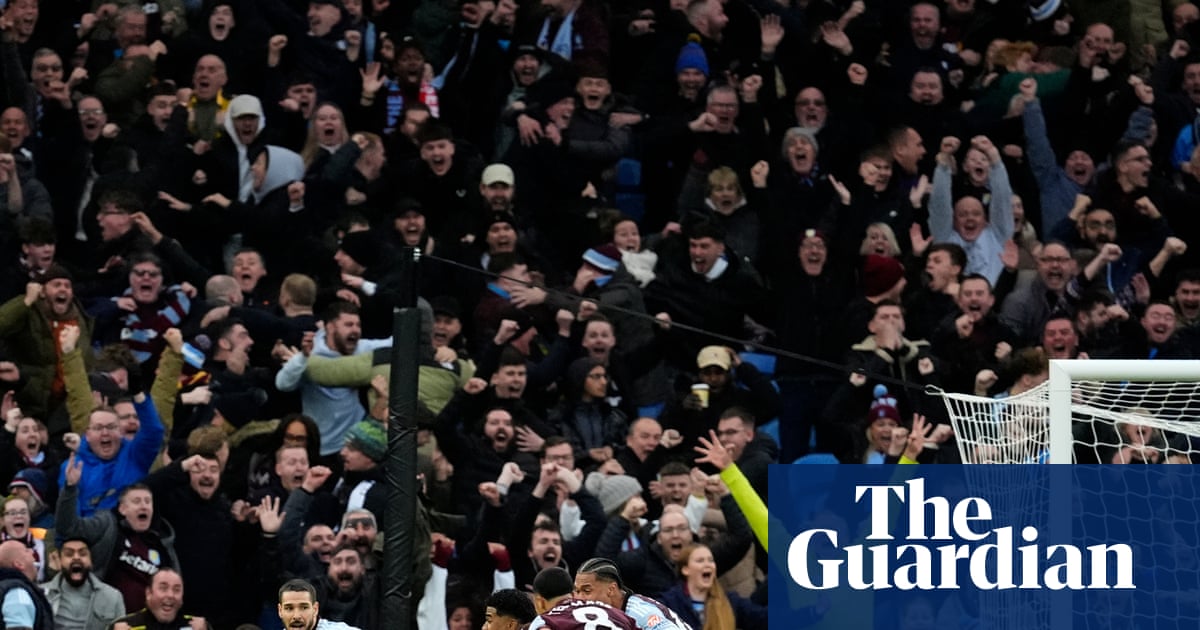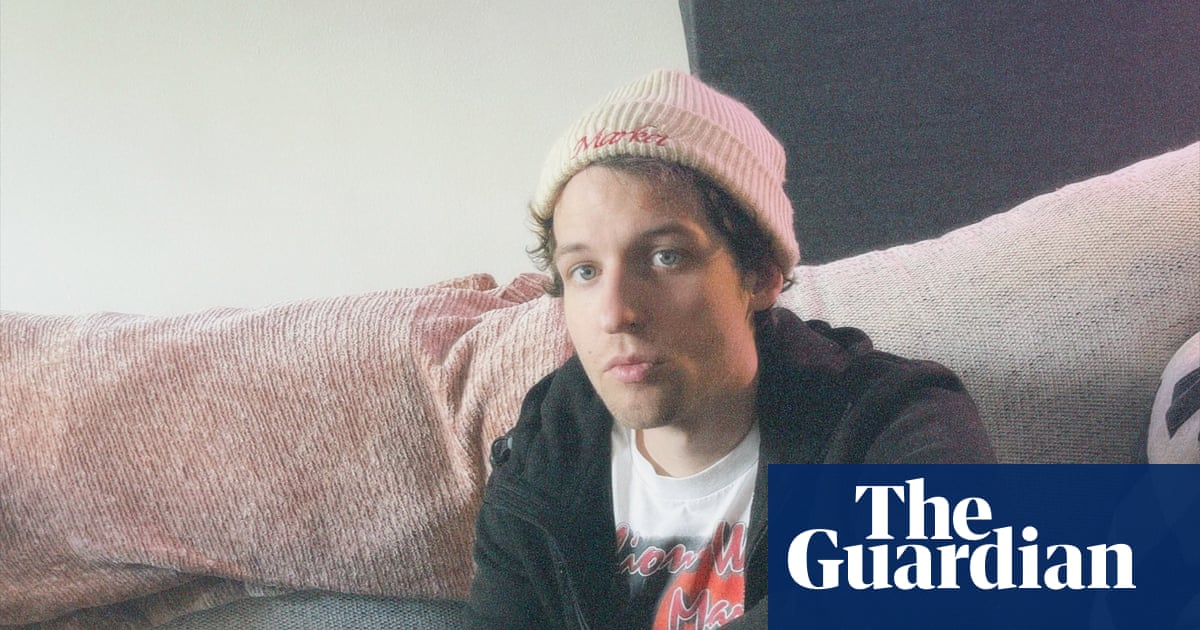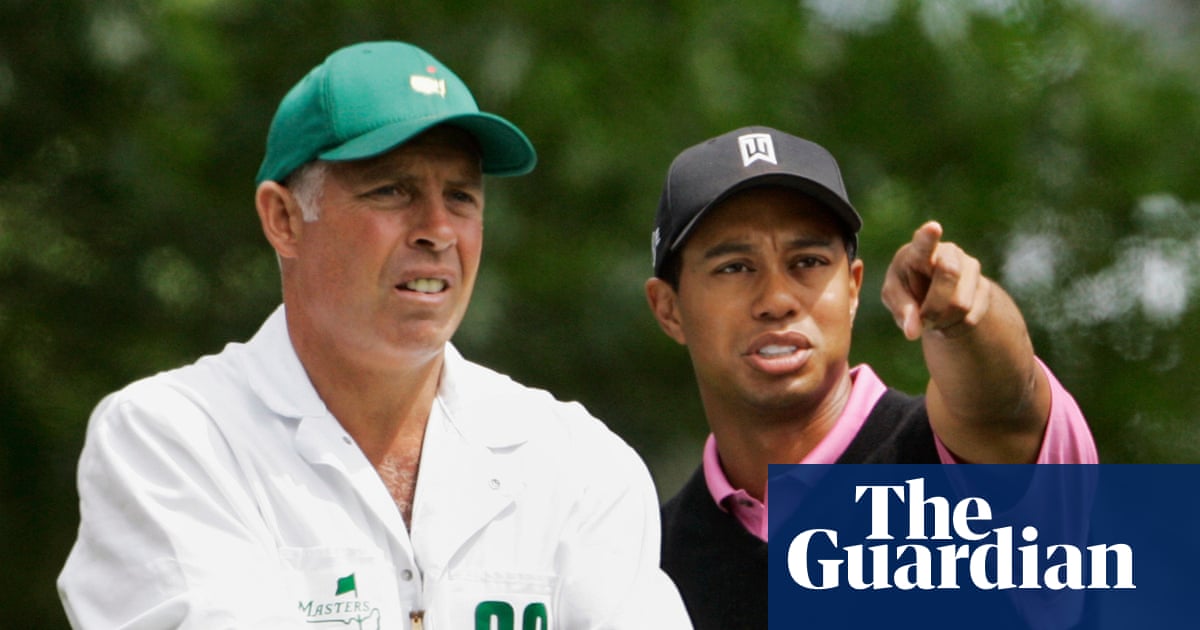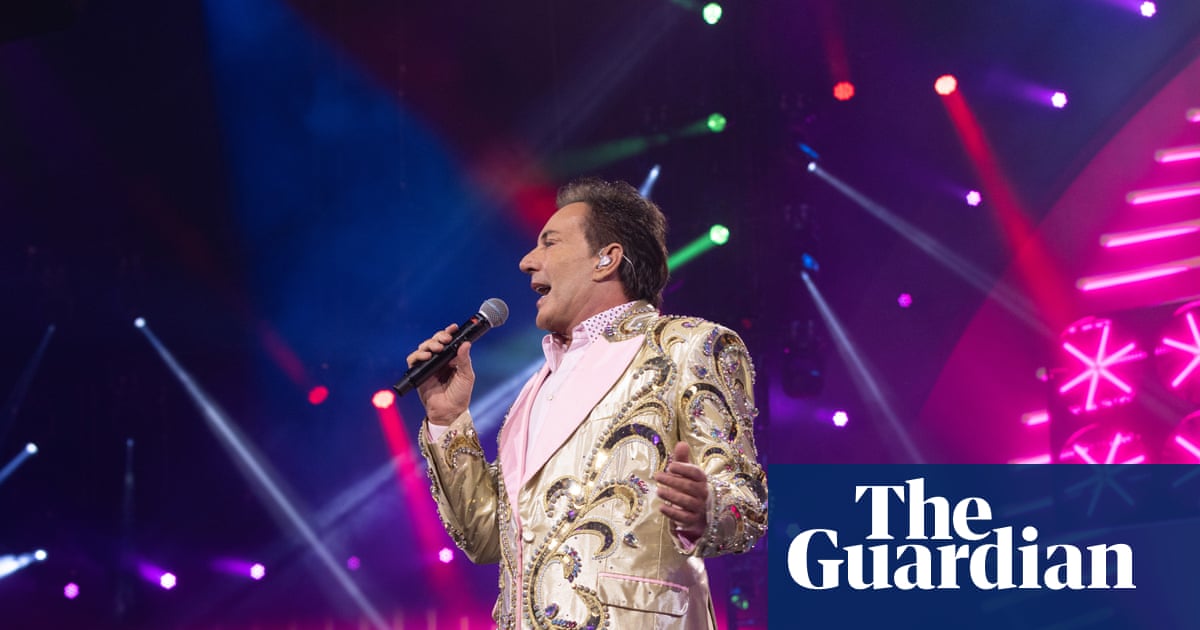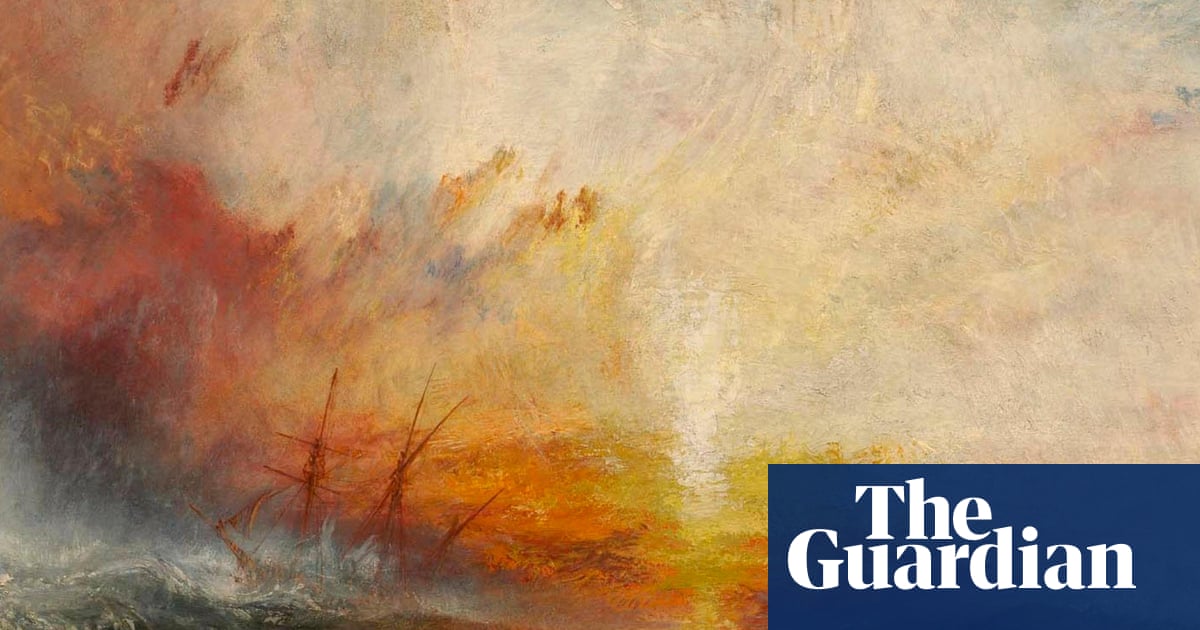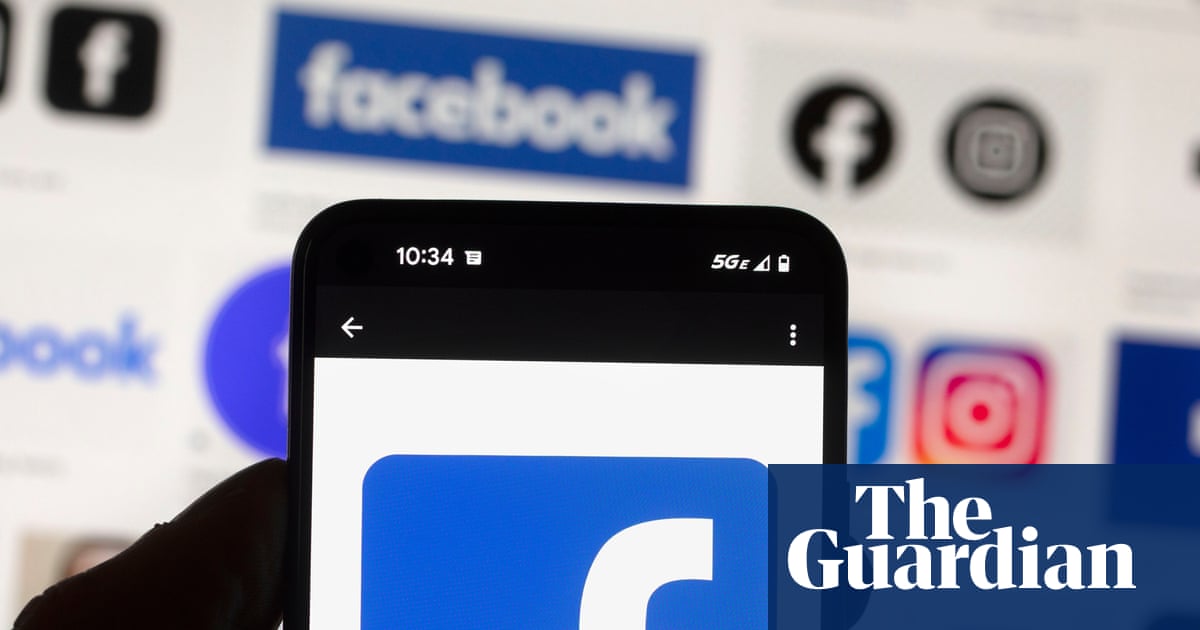When Christine Flack was invited by Disney to make a documentary about her daughter Caroline, one that would focus on the last few months before her suicide in 2020, of course she had to think hard. Why put Caroline back under the spotlight, expose her to more scrutiny, when tabloids and talkshows and social media had long since moved on?
“I knew there could be as many bad outcomes as good outcomes,” says Christine. “Certain things will be picked up and stories might come out, including ones that aren’t true. But I’d been trying for four years to understand what happened and I still had so many questions. I’d come to a brick wall so I went ahead.” She pauses for a moment before adding: “And whatever happens next, I always say that no one can do anything worse to me now. Nothing worse can happen than Caroline dying.”
Caroline Flack was one of Britain’s most successful presenters – and also one of the most talked about – when she was arrested in December 2019 and charged with assaulting her partner, Lewis Burton. She lost her job as the host of Love Island – she stepped down in order to not detract attention from the show. She lost her home – it was so besieged by the press that she never went back there after her arrest. She felt she lost the public, too, especially with the drip-drip of damning (crucially, incorrect) detail in tabloids and across social media.
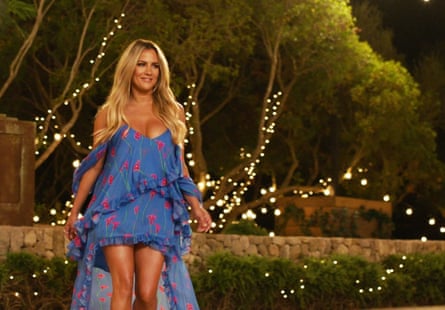
When she took her life nine weeks later, in February 2020, the narrative shifted. Now there were tributes to her talent as well as stories of her struggle with mental illness. The criminal case was awkwardly glossed over and grouped in with this, as sad evidence of her troubled mind. The correctness of her prosecution, though, was barely questioned. (Celebrities can’t expect special treatment, said the pundits.) Even Nazir Afzal, a former prosecutor with the Crown Prosecution Service (CPS), appeared on breakfast TV to stress that “We as a country have said we need to take domestic abuse seriously”. The CPS, he insisted, could only “follow the evidence”.
In Caroline Flack: Search for the Truth, Christine Flack attempts to do just this, to follow the evidence. For years, she has been haunted by the possibility that Caroline did, in fact, receive “special treatment” and was prosecuted only because the police and CPS feared the scrutiny that came with a celebrity like Caroline. They couldn’t be seen to do nothing. For Christine, understanding the decision to charge is to know why her daughter died – because she has no doubt that it was a factor in her suicide. “A different person could perhaps have come out the other side and it would be OK,” says Christine. “Not Caroline.”
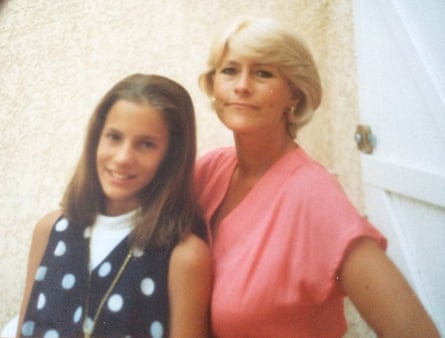
As Caroline’s mother, Christine had always been braced for crisis. The family had grown up in Norfolk, where Christine still lives. (Caroline’s father is not in the film – he and Christine divorced many years ago, and he is unwell.) Caroline had two older siblings as well as her twin, Jody. “As a little girl, she really had highs and lows,” says Christine. “She’d either be really laughing or really crying. I had to collect her from school a few times when they couldn’t stop the crying – but that was her and that continued.”
Though Caroline had planned a future in musical theatre, she was sidetracked by the success of her presenting career. As the jobs got bigger, her life did, too. In her final decade, she was rarely out of the public eye and fronted some of TV’s biggest shows – X Factor, I’m a Celebrity, Love Island. She dated Prince Harry and Harry Styles. She won Strictly – and a Bafta. In December 2018, just over a year before she died, she found time to make her West End debut as Roxie Hart in Chicago.
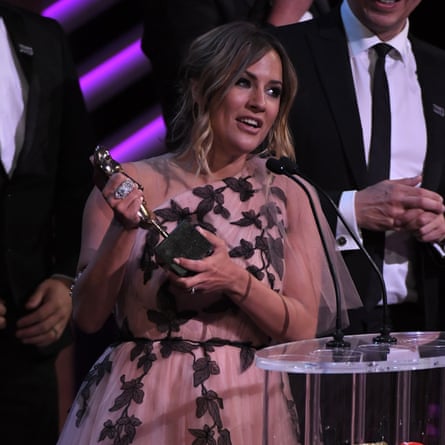
With all these highs, though, were the lows she kept hidden. There were spells in hospital, or she would check herself in just to be safe. One doctor suggested that Caroline had bipolar disorder, although no formal diagnosis was ever made. “Her work was her main coping mechanism,” says Christine. Caroline’s career was her escape, which was partly why she kept it separate. She didn’t even have a regular doctor as she was too scared details might be leaked to the press. “She was really ashamed,” says Flack. “She didn’t want to be known for that.”
Flack never slept without her phone right next to her. “It would ring and you’d know in a second whether it was going to be something fun, a ‘Mum! Guess what?’, or if you needed to get in your car and go to her.”
On the night of Caroline’s arrest, 13 December 2019, it was Jody, Caroline’s twin, who called Christine to tell her that Caroline was in a central London police cell. The previous night, Caroline and Burton had been out separately, returning late to Caroline’s flat in north London. They had both been drinking, and went to bed. Burton was sleeping when a woman messaged him. Caroline read it. She was drunk, angry and upset when she went to wake him. The inquest heard that she later told police: “I had his phone in one hand and mine in the other. I whacked him round the head. There was no excuse for it. I was just upset. I admit I did it. He was cheating on me.”
The inquest heard that a huge row ensued where Caroline became hysterical. When Burton threatened to call the police, Caroline begged him not to. (“If you call the police, I’m done.”) When he did, she harmed herself and by the time police arrived, she was seriously injured, frenzied and half-naked. Burton went back to his home – the knock to his head required no medical intervention. Caroline’s phone was taken as evidence as the likely weapon and she was admitted to hospital, where treatment took 12 hours.Then she was arrested.
“While Jody was outside the police station, a police officer went out and told her: ‘It’s all right – the CPS has thrown it out. Just wait here for her,’” says Christine. That initial CPS document judged that prosecuting wasn’t in the public interest because there was no history of domestic violence and Caroline was 40 with no previous convictions. It noted that Caroline had repeatedly admitted the assault and that the injured party, Burton, did not support a prosecution. The document concluded: “There is nothing so serious about this incident which means the guidelines [to issue a caution] need to be diverted from.” For context, out of 1.4m domestic abuse-related incidents attended by police in England and Wales in the year ending March 2024, 49,046 resulted in a charge. About 3.5%.
Shortly after, though, a detective inspector came on duty and intervened. She had a shooting to deal with that night, as well as a vulnerable missing person and, according to the documentary, this DI had no history of challenging CPS decisions. But she chose to appeal against this one, arguing that there had been no clear admission of guilt (the coroner found that Caroline had admitted to hitting Burton) and that “she has caused significant injury” to Burton. As a result, Caroline was charged with assault by beating.
The bail conditions prevented Caroline from contacting Burton and this left her further isolated in the weeks ahead. (Burton wrote on social media that not being able to see his girlfriend was “heartbreaking”.) In cases of alleged domestic abuse, where there is a previous history and a pattern of coercive and controlling behaviour, no-contact bail conditions are vital to protect vulnerable victims. They can save lives. In this case? A one-off incident sparked by an alleged infidelity, a victim who was 6ft 3in? Christine doesn’t understand it.
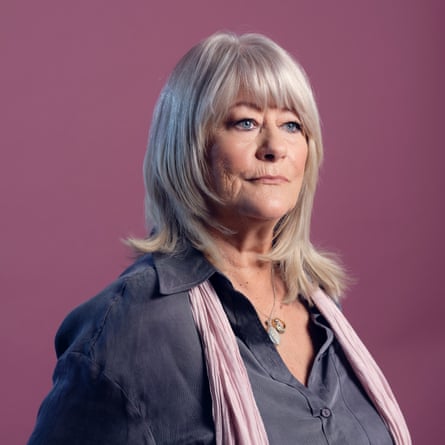
She knows she is treading a very fine line here. Christine is adamant that she doesn’t want to minimise the harms caused by domestic abuse. “Domestic violence needs to be taken seriously,” she says. “I know how bad it is. I know people who have been frightened to go home, who have been through horrendous times, trapped in controlling, abusive relationships and nothing has been done to help. I have family members who have experienced it. But this wasn’t that.”
In the documentary, Nazir Afzal agrees that, in his words, it “makes no sense”. In the immediate aftermath of Caroline’s death, he had publicly defended the prosecution without knowing the details. Having agreed to examine the evidence for the documentary, he now says he would have reached a different conclusion. It was a one-off incident with no previous history, he says, with no coercive and controlling dynamic, and Burton had remained adamant that Caroline shouldn’t be prosecuted, repeatedly stating that he regretted calling the police. “The worst thing that should have happened is a caution,” he tells Christine in the film. Caroline’s celebrity status is Afzal’s only explanation for the charge. “I can’t think of any reason [for the CPS] to proceed other than being scared of what would have been said about them.”
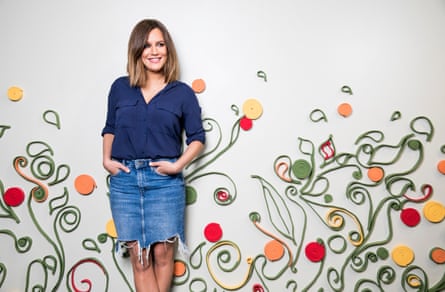
In response, a CPS spokesperson stated: “A person’s celebrity status never influences whether a case is taken forward. We are satisfied that the prosecution was correctly brought.” A spokesperson for the Metropolitan police pointed out that police engaged with a number of independent reviews of their conduct on the case. “While there was organisational learning for us on points of process, no misconduct has been identified.”
For Christine, speaking to Afzal has been bittersweet. “It’s twofold,” she says. “I hate it – because he’s saying there was no need for it to have happened. But I hope people listen to him. I’ve tried for years to speak to people in the public field. Getting their perspectives is what made the film worthwhile.”
The speed at which Caroline’s life unravelled was startling. Her home was under siege, so she moved into a hotel, barely leaving her room. The next morning brought headlines including “Caroline whack!” (the Sun) and “Flack attack!” (Daily Star). Within days, she had “stepped down” from Love Island. Within weeks, she was watching someone else host it. Her texts to friends and family from this time are painful to read: “I’ve lost it all and so publicly.” “Am lowest I’ve ever been in my life.”

The first magistrate hearing, two days before Christmas 2019, gave a glimpse of what might lie ahead. “The CPS assigned a top prosecutor,” says Christine. “Again – why?” In laying out the charges, the CPS barrister stated that Caroline had hit Burton with a lamp and caused “significant injury”. The room, the lawyer said, had been “like a scene from a horror movie”. “All the blood was Caroline’s,” says Christine. “That just wasn’t understood.” The use of the lamp is something Caroline and Burton absolutely denied – and certainly no lamp was ever removed from the scene in evidence. Still, the headlines ran with “Mad Flack beat lover with lamp” (Daily Star). On New Year’s Day, the Sun ran a leaked picture of Caroline’s bedroom taken on the night of the incident. “Photo shows attack carnage” read the front page.
“To Caroline, it felt like there was no way out,” says Christine. The implication that this “carnage” was blood spilled by Burton because of injuries inflicted by Caroline while he slept was certainly career-ending. But to correct it with the truth was to reveal her most private self, something she’d kept closely guarded for most of her life and her greatest shame. What she dreaded, should the trial proceed, was the release of police body cam footage. Caroline saw no way forward once the world had seen her barely clothed, drunk, hysterical, injured. (“I don’t think I can cope with the shame of it all” read one of her texts.)
There were times, in clear moments, when she did see a path through. “We spoke every day and if she didn’t see me, she saw Jody,” says Christine. “She had good friends that she trusted. On Christmas Day, she came home and she wanted to play games and do things, it was just lovely.” Caroline had begun making plans, too, and was speaking to a documentary team about sharing her experience, explaining herself. “At one point, she said, ‘I think I’m just going to live in Ibiza’ which is a place she loved,” says Christine. “I wish she had! One day she’d feel as if she could cope, then the next, something else would happen. There is always a way forward. I want everyone to know that.”
On 14 February, Caroline learned that attempts by her legal team to have the case thrown out had failed. The following day, she took her life.
It was Jody who found her. “By the time I arrived, the police were there, and Caroline was lying on the floor,” says Christine. “They wouldn’t let me touch her. I’ll never forget that.” She barely remembers the period beyond, though. “Covid came a month later and I do remember that I was pleased for lockdown,” she says. “You lose someone, the whole world keeps going and you see all the things that Caroline should be doing. I loved lockdown because everything stopped.”
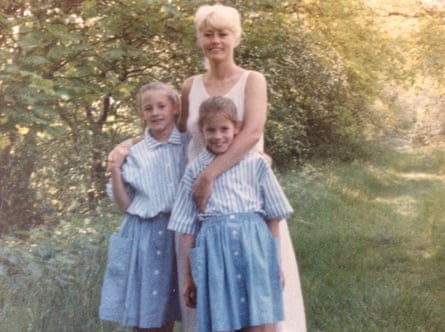
Slowly, in the months ahead, the questions began to form. Was Caroline treated the same as anyone else by police and CPS or was she treated differently? Did the media coverage push her to suicide? “I think I’ve got as many answers as I can now,” says Christine. “I hope this programme can set the record straight. I wish I’d done it before Caroline died. At the time, though, in the middle of it, we were being told to stay silent, that it would all be OK and the charges would be dropped. Caroline was telling me, ‘Mum, don’t say anything.’”
In moments, Christine has blamed herself. “I’ve asked myself, ‘Why didn’t you do this?’ ‘Why didn’t you do that?’ Sometimes, if I’m low, I think about what she must have felt that day she died. That’s the part I hate the most.” More often, though, Christine thinks about the good times. There were many. “At home, I’ve got so much of her stuff but it’s not depressing,” she says. “I’ve got her glitterball from Strictly on a shelf, her awards, her front pages and covers. Jody has a room full of Caroline’s things, her scripts, her shows. Someone gave us a beautiful portrait they’d painted of Caroline in a shoot she’d done with syrup running down her head.
“My memories now are usually fun,” she continues, “because that’s what Caroline was like in our life. When she walked into a room, she could change everything, she could lift the day.”
Caroline Flack: Search for the Truth is on Disney+ from 10 November

 2 months ago
60
2 months ago
60
